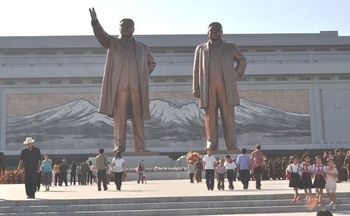Free messaging applications, such as KakaoTalk from South Korea, are now being used in North Korea. Government authorities in North Korea are very suspicious of these applications. Fearing the unregulated release of information, the government now tries to expose users.
Are KakaoTalk users spies?

KakaoTalk is used by over 140 million people worldwide. The application was created in South Korea but users can now be found in North Korea, primarily in cities along the border with China. The American organization Radio Free Asia (RFA) reported on August 1st that North Korean authorities started to crack down on KakaoTalk when they realized that users could communicate with people in a number of countries across the world.
According to citizens of North Korea who have fled to South Korea, the North Korean State Security Department inspects the smart phones of users primarily in North Pyongan Province, in the northeast of the country. If the State Security Department can establish that someone has downloaded the KakaoTalk application and used it to exchange messages, that person is regarded as a spy and taken into custody.
Even in these dangerous circumstances, the prospect of being able to communicate with people overseas is extremely appealing. RFA reports that used smart phones are selling for over US$300 in cities along the border with China.
There are already over 2.5 million cellular phones in North Korea, which means that one person in ten is a cell phone user. Phone conversations are subject to surveillance, including by means of wiretapping. Consequently, people in North Korea are aware that their communications may be intercepted whenever they use the phone. There are indications that the authorities jam cellular phone signals to block calls coming in from China.
We are able to exchange messages
A North Korean defector living in South Korea spoke frankly, having contacted residents of Sinuiju City in North Pyongan Province, on the border with China. The defector said: “The reception is always weak, which makes it difficult to receive pictures and make calls...It is possible to send and receive text messages but I do not know if the authorities are viewing them. I have no idea whether they can also jam the signal for text messages.”
RFA did not know on what kind of people and on what the scale the restrictions are being implemented. However, we are reminded that the progress and dissemination of information-related technology cannot be completely eliminated in any country. Within North Korea, domestically produced smart phones, such as “Arirang” and “Pyongyang Touch”, are becoming more popular, but the scope of their usage is ultimately limited. The crackdown on certain applications is likely to continue.

